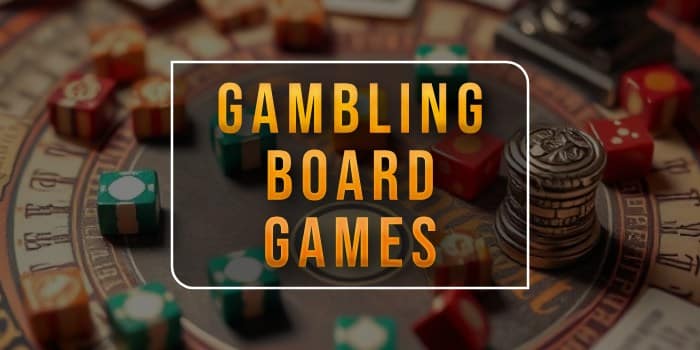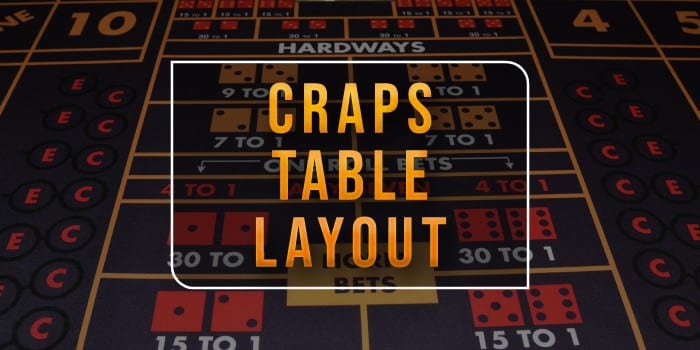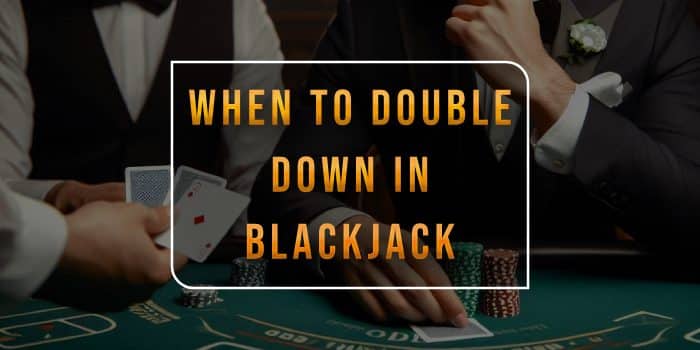- Casino
- By State
- Alabama
- Alaska
- Arizona
- Arkansas
- California
- Colorado
- Connecticut
- Delaware
- Georgia
- Florida
- Hawaii
- Idaho
- Illinois
- Indiana
- Iowa
- Kansas
- Kentucky
- Louisiana
- Maine
- Massachusetts
- Maryland
- Michigan
- Minnesota
- Mississippi
- Missouri
- Montana
- Nebraska
- Nevada
- New Hampshire
- New Jersey
- New Mexico
- New York
- North Carolina
- North Dakota
- Ohio
- Oklahoma
- Oregon
- Pennsylvania
- Rhode Island
- South Carolina
- South Dakota
- Tennessee
- Texas
- Utah
- Vermont
- Virginia
- Washington
- West Virginia
- Wisconsin
- Wyoming
- By State
- Slots
- Poker
- Sports
- Esports
- Home
- Do Women Make Better Gamblers Than Men?
Do Women Make Better Gamblers Than Men?

Gender bias is a terrible thing. Yet we all have a secret penchant for pitting the sexes against one another. While male vs female gambling may not seem like the most worthwhile comparison, genders do tend to have an inherently different approach towards games of chance or games of skill for that matter.
It gets even more interesting when you consider Maria Konnikova, a creative writer and psychologist who is perhaps our best insight into the psyche of a female gambler.
Whether Konnikova really gambles is another matter altogether (she is a professional poker player where chance is not really a popular concept), but she gives us a very good understanding of how male vs female gambling patterns manifest and whether they are encoded in one’s gender?
So, do women make better gamblers than men? That seems to be a boring question to ask. Rather, we ought to ask ourselves – how do female and male gamblers differ from one another, and is it a sex or gender thing, or a cultural thing altogether?
To get to the bottom, we have dug into extensive research as well as a few anecdotes from Konnikova’s life as a female gambler.
Male vs Female Gambling: What’s the Difference?
The science is there, we just need to crack it. Before we turn this post into the battle of the genders – and god knows nobody needs any more of that – there is some compelling research that has examined how male and female gamblers approach games of chance.
In a research piece named ‘Does gender moderate associations among impulsivity and health-risk behaviors?’ Stoltenberg S argues that how men and women participate in gambling differs greatly.
Now, you may think that this is prejudice, but Stoltenberg used some pretty accurate data readings, concluding that men in the United States tend to gamble more frequently, as well as win bigger and register higher losses.
Even more surprisingly though, another study carried out by Winters K indicated that gambling is quite popular. Some 91% of all college men and 84% of all college women have come in contact with some form of gambling, the study claimed.
So far as exposure goes, there are no winners and both genders seemed to be pretty much on par in that study.
However, things do get interesting when you consider the rate of gambling addiction. An estimated 4.2% of all men tend to show signs of gambling addiction as opposed to 2.9% of women.
As gamblers emerge for the first time, a striking difference presents itself. Young men who are only getting started with gambling 14% of men were doing so at what was considered problem levels compared to only 3% for women.
The only real difference in male vs female gambling is that men tend to be more inclined to take up some form of gambling, even though both genders seem to be exposed to it a fair bit.
A Battle of the Genders, a Battle of the Wits
It’s hardly about exposure or the rate of participation. If you want the raw, unpolished, bloody truth, you will have to take your examples from real life.
Who’s better in male vs female gambling? If we went off the all-time poker live winnings list in The Hendon Mob that would be Daniel Negreanu with his fortune sitting at $42 million. Yet, Maria Konnikova may be a very good example of how men and women compare at the green felt.
Of course, Konnikova is a Harvard University graduate and secured her Ph.D. in psychology from Columbia University, which puts her a little over your average male gambler. However, this is where it gets really interesting. As a psychologist, Konnikova is in the best place to tell you how female and male gamblers differ.
Her scientific acumen and agile mind have cost a few men a pretty penny, other than inflicting a big blow to their ego. Konnikova usually swims with the big poker fish, but sometimes she ends up playing with the rank-and-file hopefuls, and they can be mean.
In her own words, she has been called everything at the poker table, and actually propositioned (at least once). Interestingly, though, Konnikova’s time spent among aspiring players has given her an insight into their own psyche with them being none the wiser.
In an interview for the New York Times, she said that she could exploit gender bias to her own advantage. For example, male gamblers viewed female gamblers in a certain way. She used this to her advantage, arguing that “once I figure out how they view women, I can figure out how to play against them.”
As she elegantly puts it, “there are people who’d rather die than be bluffed by a woman.”
Who Calls the Better Bluffs in Male vs Female Gambling?
When you pit male versus female gamblers against one another, you are no longer trying to explore how genders react in relation to seemingly random events, such as the outcome of a slot machine or the results of a horse race.
On the contrary, you are forcing two types of players that aren’t really used to playing against each other. While most gambling games are social in nature, from the lottery to bingo, others, such as poker can be about ego.
It’s there where true male vs female gambling with all its pitfalls and prejudice shines. Male gamblers are statistically less likely to admit defeat to women in a game that is considered the preserve of men by right and they take it as an “affront to their masculinity.”
It’s silly how the human mind works, and especially men’s minds since they are the ones who would never admit defeat to a woman but rather simmer at the sight of freshly-incurred financial loss.
Male gamblers will have all sorts of prejudice against female gamblers. For example, some men might dismiss female gamblers as “unable bluff.”
Imagine the antics a female gambler can pull off if she catches wind оf a male opponent who is dismissing her on what is a painfully frivolous surmise. It’s interesting to see how fixed gambling patterns could entrap male gamblers who see female counterparts, not as fellow gamblers but as female gamblers.
Gambling Addiction by Gender
One area where research almost always agrees is the rate of female addiction and its incidence in male counterparts.
According to Shaffer H and his study on the prevalence of disordered gambling behavior, 20.1% of male gamblers exhibit symptoms of problem gambling as opposed to just 7.1%.
Now, this study was done all the way back in 1999, which might question its validity, but numerous examples of gambling addiction by gender support the claim that women just tend to be less vulnerable to addiction.
A more contemporary look comes from the United Kingdom where the Gambling Commission conducts regular surveys. Based on the regulator’s data, 1.2% of males and 0.2% qualify as pathological gamers as per data collected in 2016. According to other gambling addiction statistics in Australia, 1.5% of men are considered problem gamblers as compared to only 0.8% of women.
Why is that the case, though? Are male gamblers immune to the pitfalls of unchecked gambling or are they more easily bored? There are many ways to approach gambling addiction in male vs female gamblers.
The reason is not necessarily rooted in some character flaw as much as it’s a combination of factors, such as genetic predisposition, sociological impact, and exposure.
According to Dr. Robert Lefever, men tend to have an ingrained need to demonstrate bravado.
Now, the desire to “show off” is not passed down at birth to men, Dr. Lefever argues, but it’s instilled in boys as they grow up. Risk-taking is also considered an important part of male culture, and men tend to be particularly proud of it.
Some, such as Dr. Lefever himself, would even brag about losing three months’ income on a single poker card.
This is not something a man should be proud of, Dr Lefever says.
Risk Factors for Gambling Problems
Now, this is the really interesting part when talking about gambling gender statistics, specifically discussing gambling risk factors.
What is it in one’s immediate environment that determines if a person will become addicted to gambling?
While no specific gambling risk factors have been isolated with indisputable scientific evidence, the general consensus has been to limit exposure to gambling products among underage individuals.
In the United Kingdom, Spain, and Italy, gambling advertisement has been reduced or completely prohibited. Of course, exposure is not the only risk factor to consider here.
According to a study by Clarke D on voluntary risk-taking, there is a gender trace in why gambling addiction tends to manifest more often in men than it does in women.
It all boils down to men’s inclination for risk-taking. In his study, Clarke argues that addiction works in much the same way. He takes into consideration men’s overrepresentation in car accidents as an example of this risk-taking culture among men.
Other studies explain differences in gambling addiction in genders citing the higher sensation seeking in men. Yet another trait determining how men and women approached gambling was the expected outcome by both genders.
In a study conducted by Harris C, Jenkins M in 2006, the scientists established that men were more likely to perceive positive outcomes from gambling whereas women feared negative outcomes instead.
Surprisingly, risk-taking seems to be a way to cope with social anxiety and pressure.
Despite their machismo, men tend to suffer from social anxiety and be more concerned with their image than women.
In a study by Wells S, men reported that societal pressure to maintain one’s image pushed many into heavy substance abuse as the means to relieve that pressure.
Are any of the above risk factors for gambling problems? The simplest answer is that addiction is addiction, and if men feel more anxious growing up, they may end up picking up the wrong habits.
Conclusion
The question do women make better gamblers than men is an interesting one as it explores the human psyche from two distinctly different vantage points. The only thing we can conclude with almost absolute certainty is that for one reason or another, men tend to gamble more.
Whether they do so to cope with social anxiety or out of sheer, unbridled bravado is still for science to determine. Yet, from where we stand, both sexes are perfectly capable of delivering devastating plays in any gambling game of skill.
As it is, the battle of the sexes continues.
Related Topics:
Mike made his mark on the industry at a young age, consulting for companies that would later become regulators. As one of the lead editor of Gambling News, he dedicates his weekdays to this project, aiming to educate the masses on the latest developments in the gambling circuit. His expertise and passion for the industry make him an invaluable asset to our team.
Must Read
Legal
November 17, 2019
Philippine Gaming Operators Involved in Prostitution Ring
Casino
October 7, 2019
Haven Gaming to Build Danville Casino in IL
Casino
October 6, 2019
MGM To Pay $735M as Part of Settlement for Las Vegas Shooting
Casino
September 28, 2019
Swiss Casinos Group Partners with Playtech
Sports
September 27, 2019
Mobile Sports Betting Finally Coming to Indiana
More Articles















December 3, 2024
Boxers Who Started Late and Became Champions

November 19, 2024
Best Gambling Board Games

October 25, 2024
Top 20 Books About Gambling

October 23, 2024
Craps Table Layout

Casino
October 21, 2024
Megabucks Slot Machines

September 30, 2024
What Soccer Positions Are There and How They Work

September 27, 2024
The Best Arcades in Las Vegas

September 26, 2024
When to Double Down in Blackjack

September 24, 2024
Best Offshore Sportsbooks and Betting Sites

September 22, 2024
League of Legends World Championship: Odds, Tips & Predictions

September 19, 2024
How to Become Professional Gambler

September 17, 2024
What Is a Pachinko Game Machine?

September 16, 2024
Michael Jordan Gambling: The Good, the Bad, and the Ugly

September 13, 2024
Best Odds in Vegas – Which Game Is Superior?



